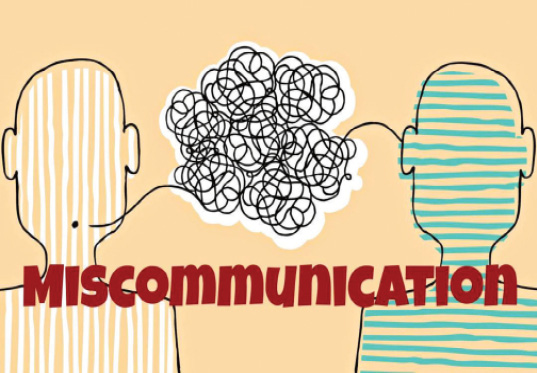Knowledge is power. These days, it turns out [mis]information can also kill you.
At the height of the Ebola virus disease outbreak, messages circulated on social media and instant messaging asking anyone to bathe in salt water. Deaths from that deadly bath exceeded deaths from the virus itself.
Fake news isn’t just a weird concept anymore. It is a reality you deal with every day. The tech giants who control the algorithm behind our social media presence has a gazillion bytes of data that map what comes from where to where.
Facebook recently put up a strategy to filter fake out of the news that shows up in your feeds. That simple move cut out hundreds of thousands of “fake” bots simply designed to make certain chosen posts go viral, increasing the chances of something ending up on your timeline.
Misinformation, deliberate or not, is another reality. It is beyond the realm of pranks or fad—when it comes to your health.
“Health misinformation can maim or kill,” says Peter Cunliffe-Jones, executive director at Africa Check, an organization devoted to fact-checking claims for veracity or otherwise. The organization recently convened a workshop with health journalists in Nigeria to underscore how health journalists even can be unwitting purveyors of misinformation—and how they can prevent that from happening.
“It is bigger than one small organization can tackle, so we try to bring as many experts in the field together, so people who have data about the problem, people who are in a position to tackle health misinformation, get them in a room, get them talking about the solution,” says Cunliffe-Jones.
“We want to see a solution, rather than restating the problem.”
It bears restating though. Even before social media, misinformation has caused havoc in Nigeria’s public health: more recently the scare of monkey pox and “forceful” vaccination by soldiers prompted to nearly lay measles vaccination to waste. It was the old polio story on playback.
“One major reason Nigeria lags in Global Polio Eradication Initiative was the fake news that polio vaccine was a secret ploy to sterilize [children] and limit population, which made many parents reject immunisation for their children,” says minister of state for health, Osagie Ehanire.
“In fact, some health workers found themselves at risk at the hands of communities that had turned hostile.
“That setback threatened to derail the polio elimination effort, and it took sustained intervention and campaign of powerful community influencers, especially traditional rulers, to counter the rumour and restore faith in the programme.”
In the era of social media, health journalists might be the vanguard of campaign against misinformation—and have to constantly guard against propagating it themselves.
In the past few weeks alone, some claims have made the rounds. One named Japanese doctors as claiming “warm water therapy” could cure almost anything in a matter of days: diabetes in 30 days, all cancers in nine months. Another claimed cold water is bad for you. Yet another claimed a “tongue exercise” was useful in dealing with body weight, bloodclot in the brain, asthma, throat infection, even hypertension.
One concocted 10 rules for mental health in the workplace, called it “Basic Rules for Happy Life” and slapped on a who.int hyperlink.
“I really don’t know how these guys manage to get away with stunts like this,” says health journalist Chika Onyesi.
“You see a health journalist might be tricked into reposting this because it has WHO link on it and it all sounds true.”
It is not. Click through, and you are on the landing page of the World Health Organisation’s newsfeed, not any particular post.
Lawal Bakare was behind the start of @epidalert, an online tool that helped counter misinformation during the Ebola outbreak. He sees misinformation taking on bold steps and new forms.
It is the new “conspiracy theories of people just sitting and formulating ideas in their heads because of what they feel is an issue. They will not verify it,” says Bakare.
That’s probably because of a bias. It might be false, but if it rings true and chimes with what you belief in, then you take it. It is the logic of fake news.
“Sometimes people actually feel there is some kind of truth to it. So they cook it together and start pushing it out,” says Bakare.
Once out, it takes a click-to-send motion to share around the world, many times in ignorance, and other times in firm conviction of a wrong. Like a professor claiming ewedu can cure Ebola.
“They always feel they have an answer. They are a level of percentage absolutely sure of what they are saying, and that is why it is dangerous,” says Bakare.
“A lot of people will be vulnerable and helpless at that moment. In most cases, people probably don’t listen to those who have the right answers. They get in on the bandwagon and start perpetuating the falsehood.”




